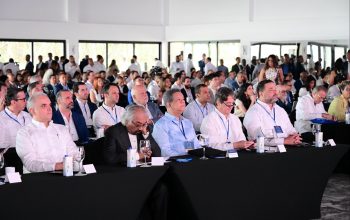news
Education is the Number One Driver for Developing Peaceful and Tolerant Societies
June 15, 2015
GFDD/Funglode attended the UN for an education event entitled “Global citizenship education for a just, peaceful, inclusive and sustainable world: A conceptual framework and its application in the world” on Monday June 15.
 The event was co-organized by the Permanent Missions of France, Nigeria, Qatar and the
The event was co-organized by the Permanent Missions of France, Nigeria, Qatar and the
Republic of Korea, the United States Mission and the United Nations Educational, Scientific and Cultural Organization (UNESCO), in support of the Secretary-General’s Global Education First Initiative (GEFI).The panel discussion was moderated by H.E. Ambassador Hahn Choong‐hee of Korea, who explained the transcending importance of the GEFI by stressing that education is directly related to the other key mandates of the UN such as peace, security and therefore remains a
vitally important component of the SDGs.
 The event included statements from governments all around the world supporting the value of education for the peaceful and sustainable development of countries.
The event included statements from governments all around the world supporting the value of education for the peaceful and sustainable development of countries.
H.E. Ambassador Richard Erdman, Acting Representative to ECOSOC of the Permanent Mission of the United
States of America to the United Nations recalled the work of the GEFI, highlighting that “education is a moral imperative and a necessary foundation for a more peaceful word”. He told the audience that “Global Citizenship Education (GCED) is multifaceted in its execution and essential to achieving the Post 2015 Development Agenda.”
 Next, H.E. Ambassador Usman Sarki, Deputy Permanent Representative of the Permanent Mission of the Federal Republic of Nigeria to the United Nations stated told attendees that “today we see ourselves as citizens of the world. With this vision comes the responsibility to be educated about the world. The essence of the draft Sustainable Development Goals is aimed at the development of peaceful tolerant
Next, H.E. Ambassador Usman Sarki, Deputy Permanent Representative of the Permanent Mission of the Federal Republic of Nigeria to the United Nations stated told attendees that “today we see ourselves as citizens of the world. With this vision comes the responsibility to be educated about the world. The essence of the draft Sustainable Development Goals is aimed at the development of peaceful tolerant
societies. Education should therefore be the number one driver at developing such societies.
Taking the floor after Mr. Sarki, Mr. Yousef Laram, Deputy Permanent Representative of the State of Qatar to the United Nations confirmed that “Education is at the core of sustainable development and a peaceful existence” before stressing that Qatar will continue to be a key partner in promoting the right to education.
 As the final speaker for member states, Mr. Francois Gave, Counsellor at the Permanent Mission of France to the United Nations, praised the Mission of Korea for its initiative in organizing this event, explaining that critical thinking is an important part of GCED. He stated that “the fact of knowing how little you know is a lesson in humility, one which challenges prejudices,
As the final speaker for member states, Mr. Francois Gave, Counsellor at the Permanent Mission of France to the United Nations, praised the Mission of Korea for its initiative in organizing this event, explaining that critical thinking is an important part of GCED. He stated that “the fact of knowing how little you know is a lesson in humility, one which challenges prejudices,
dogmas. Supporting GFED will ensure people learn how to become tolerant of one another”.
Mr. Christopher Castle, Chief of UNESCO’s Section of Global Citizenship Education, highlighted his organization’s active role in promoting GFED. He explained that UNESCO had recently held 2 UNESCO Global Fora engaging youth on GCED, both in Bangkok in 2013, and in Paris in 2015. He pointed out that 250 participants from over 61
countries had participated in these discussions. Concluding his intervention he said that when considering how to implement GCED he explained that it “should be placed at the center of education systems and dare to be transformative”.
 Finally, taking the floor for civil society and teachers, Ms. Antonia Wulff, a Coordinator for
Finally, taking the floor for civil society and teachers, Ms. Antonia Wulff, a Coordinator for
Education International, emphasized that it is important for teachers to be trained and supported to deal and implement GCE in a way that makes sense, so that the system does not just about focused on ”teaching students the ability to sit exams”.
Related links:
http://www.unesco.org/new/en/global-citizenship-education
http://www.globaleducationfirst.org/






